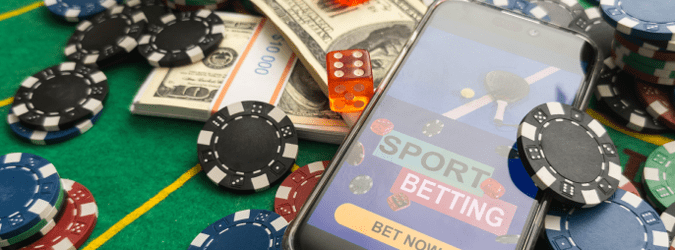
Play Classic Table Games and Their Timeless Appeal
If you love the thrill of competition and the joy of strategy, then Play classic table games and betandreas-login.com is the perfect place to indulge in your passion for classic table games. These games have stood the test of time and offer an incredible blend of skill, chance, and social interaction. In this article, we will delve into the history, types, and strategies of classic table games, ensuring that you not only learn about them but also discover how to enhance your gaming prowess.
The Historical Significance of Classic Table Games
Table games have been a staple of human entertainment for centuries. From the ancient board games of Mesopotamia to the modern adaptations we enjoy today, these games have shaped cultures and fostered relationships. Historically, they served as a means of socializing and building community, whether on the streets of Athens playing knucklebones or within the royal courts indulging in chess.
The earliest known board game, Senet, originated in Ancient Egypt around 3100 BC. It is a testament to how deep-rooted the appeal of such games is in human society. Over the years, variations have emerged, yet the core attraction remains unchanged—the strategic competition against others and the social bonds forged while playing.
Types of Classic Table Games
Classic table games can be categorized into various types, each offering unique gameplay experiences and strategies. Here are a few of the most popular categories:
1. Strategy Games
Strategy games, such as Chess and Go, require players to think several moves ahead. These games are often associated with intellectual prowess and have been used in competitive environments, including international tournaments. Mastering these games involves understanding various openings, tactics, and endgame strategies.
2. Chance-Based Games
Games like Ludo and Snakes and Ladders fall into this category, where the outcome heavily relies on luck. While strategy can influence the game flow, the roll of dice ultimately determines progress. Such games are typically more accessible and can be enjoyed by players of all ages.
3. Card Games
Card games, including Poker and Bridge, combine elements of strategy, chance, and social interaction. Unlike purely chance-based games, card games often require reading opponents, bluffing, and probability calculations. The richness of these games allows for endless variations and styles of play.
4. Dice Games
Games such as Craps and Yahtzee utilize dice as the primary component of gameplay. The appeal of dice games lies in their simplicity and excitement, making them perfect for casual play among friends or family.
The Social Aspect of Table Games

One of the most significant advantages of classic table games is their ability to bring people together. Whether you’re playing casually with family or competing in a serious tournament, these games foster socialization. Engaging in strategic discussions, celebrating victories, and even dealing with losses can strengthen bonds between players.
Moreover, table games have a fascinating way of incorporating diverse groups. They transcend age, culture, and background, allowing individuals with differing experiences to connect over a shared passion. This communal aspect is a big part of why traditional games continue to thrive despite the rise of digital gaming alternatives.
Strategies for Success
To elevate your skills when playing classic table games, consider applying some effective strategies:
1. Learn the Rules Thoroughly
Before you even consider strategy, make sure you fully understand the rules of the game. Each game has its nuances, and knowing the mechanics inside-out will enable better decision-making during play.
2. Observe and Adapt
Pay attention to your opponents’ moves and strategies. Adapting your gameplay based on their patterns can give you a significant advantage.
3. Practice, Practice, Practice
Like any skill, practice is essential. The more you play, the better you’ll understand different strategies and how to implement them effectively.
4. Stay Calm and Collected
Whether you’re winning or losing, maintaining composure enhances your ability to think clearly and make strategic choices. Emotional decisions often lead to mistakes, so strive to keep your wits about you.
The Future of Classic Table Games
As technology evolves, so does the way we interact with games. While digital versions of classic table games are becoming increasingly popular, the charm and social interaction provided by physical games cannot be replicated. Board game cafes, tabletop gaming events, and online communities are keeping classic table games alive and relevant in the modern era.
In recent years, there has also been a resurgence of interest in analog gaming among younger generations, who appreciate the tangible experience and social engagement that table games provide. This revival bodes well for the future of classic games, promising to bring these timeless pastimes to new audiences.
Conclusion
Classic table games hold a special place in our hearts, conjuring memories of laughter, strategy, and camaraderie. By understanding their history, exploring various types, and honing your skills, you can fully appreciate the richness these games offer. As you join friends or family to play classic table games, remember that the experience is just as important as the outcome. So gather around the table, roll the dice, and enjoy the timeless fun that these games bring!
